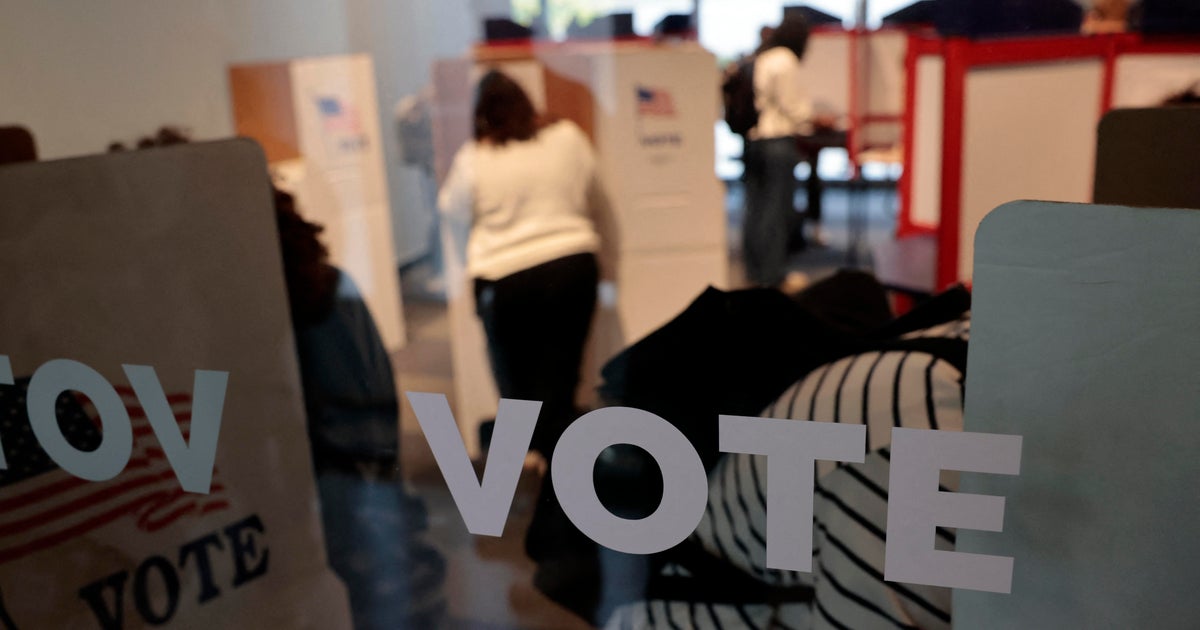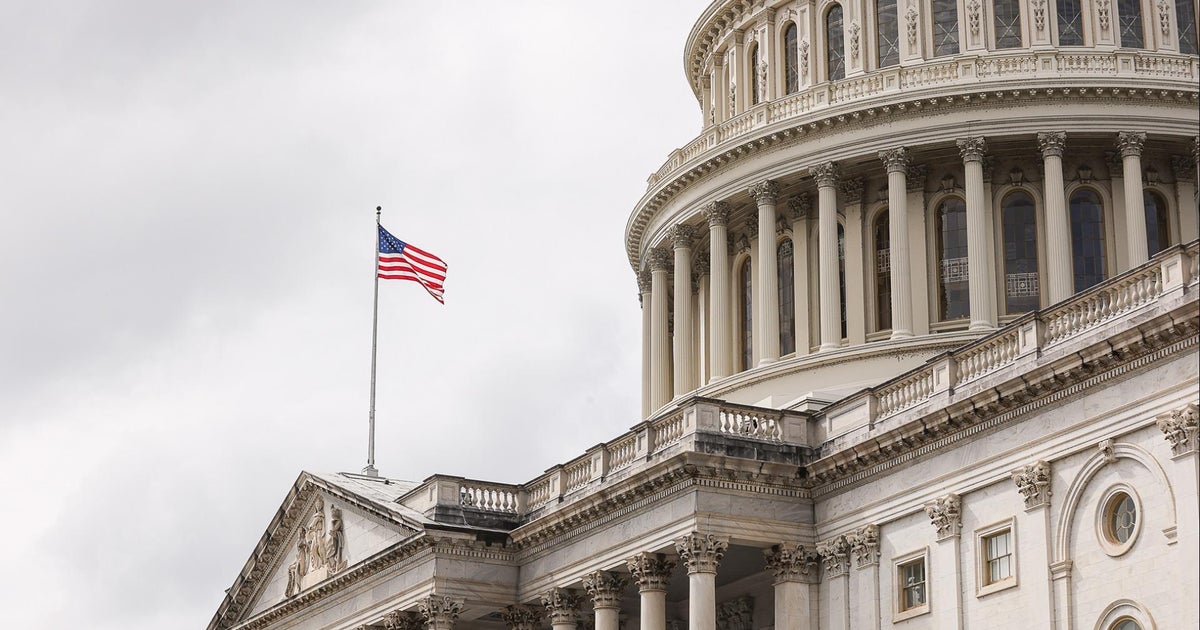CBS News
Republican effort to hold Attorney General Merrick Garland in inherent contempt of Congress falls short
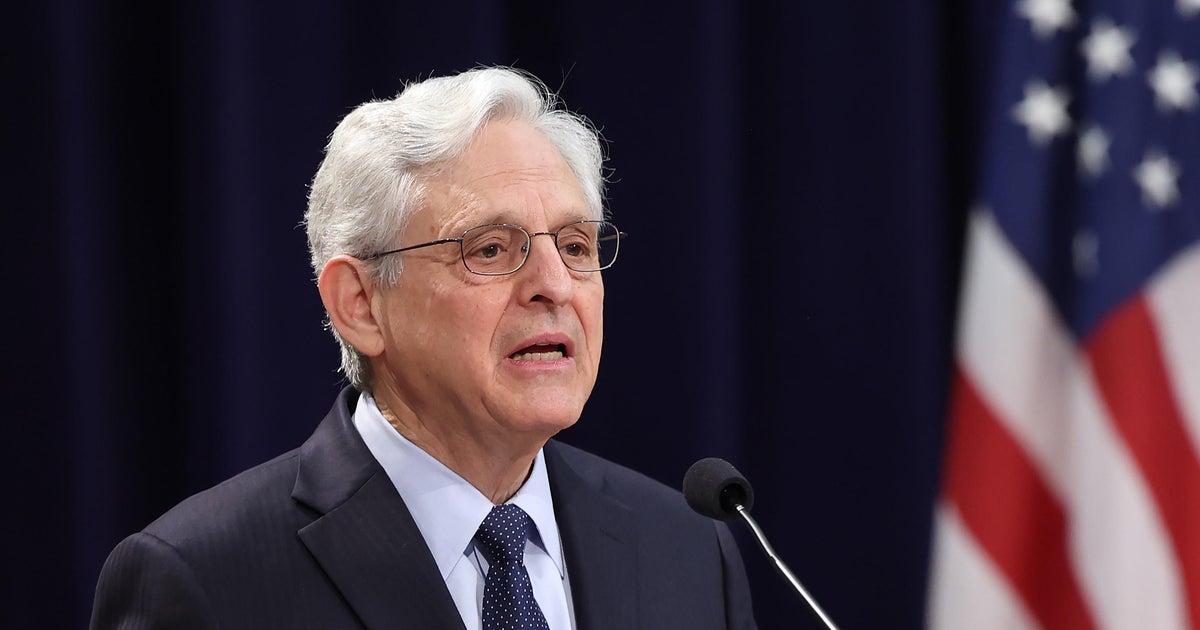
Washington –– A Republican-led effort to hold Attorney General Merrick Garland in inherent contempt of Congress fell short on Wednesday, without enough support among House Republicans for a resolution to impose a fine of $10,000 per day on Garland for defying a congressional subpoena.
In a 204 to 210 vote, four Republicans voted with all Democrats to oppose the measure.
Rep. Anna Paulina Luna, a Florida Republican, forced the vote, which she has been threatening in recent weeks, warning that if Garland didn’t comply with a subpoena for the audio recording of an interview concerning President Biden’s handling of classified documents, that she would move forward with the tool, which has rarely been used, especially in modern times.
Luna initially intended to bring up a resolution that could have resulted in Garland being taken into custody, but opted to move forward with the daily fine approach amid pushback from her GOP colleagues.
“In order for the House of Representatives to do its job, we must have access to the information that will allow us to make informed decisions on behalf of our constituents,” Luna said on the the House floor on Wednesday. “We have been left with no choice but to rely on inherent contempt, our constitutional authority to hold an individual accountable for refusing to comply with congressional demands.”
House Republicans are seeking audio recordings of the president’s interview with special counsel Robert Hur, which came as part of an investigation that wrapped earlier this year. Though the House Judiciary and Oversight committees demanded that the Justice Department provide the tapes as part of their impeachment inquiry into the president, the president asserted executive privilege over the recordings in May. But that didn’t prevent House Republicans from voting to hold Garland in contempt of Congress for the refusal to hand over the recordings in a vote last month.
Though the move to hold Garland in contempt marked an escalation, it was not without precedent. In 2012, former Attorney General Eric Holder was held in contempt, as was former attorney general Bill Barr in 2019. Neither faced criminal charges from their own Justice Departments.
Absent compliance, inherent contempt is one of three formal methods that Congress can use, according to a 2017 report from the Congressional Research Service. The report notes that the “long dormant” inherent contempt power allows Congress to detain and imprison an individual until they comply and “there may be an argument for the imposition of monetary fines as an alternative.” The other avenues involve relying on the other branches of government to enforce subpoenas.
But the report outlines that there’s no precedent for Congress imposing a fine in the contempt of Congress context. And a 2019 report from the Congressional Research Service notes that “even if Congress retains this authority, it is unclear how such a fine would be implemented and, in the case that the contemnor refuses to remit the sum, collected.”
A spokesperson for the Justice Department told CBS News that the move is “unconstitutional.”
“We are confident our arguments would prevail in court,” the spokesperson said.
Democrats fiercely opposed the resolution, claiming Republicans are seeking the audio only so they may be used in attack ads against the president.
“This is a stupid resolution,” Rep. Jim McGovern, a Massachusetts Democrat, said. “The attorney general turned over the exact transcripts of the interview that Republicans demanded, but that wasn’t good enough… this is Republicans weaponizing the government to go after their political opponents.”
Luna’s privileged motion, which bypassed House leadership to get a vote on the floor, required that leadership schedule the vote within two legislative days. Speaker Mike Johnson indicated ahead of the vote that he would vote in favor of the resolution, though he said his preference would be to continue to seek relief through the courts.
“I’m for being as aggressive as possible with holding Merrick Garland accountable,” Johnson said at a news conference on Tuesday.
House leadership has so far appeared inclined to pursue enforcement of the subpoena, especially since a disastrous debate performance by President Joe Biden prompted increased calls to gain access to the audio recording that likewise prompted alarm among Democrats about the president’s fitness for another term earlier this year. The House Judiciary Committee filed a lawsuit earlier this month against the Justice Department to enforce the subpoena.
Former President Donald Trump came out in support of the measure on Wednesday, saying he agrees with the move to hold Garland in inherent contempt in a social media post. “Republicans MUST GET TOUGH about stopping weaponization and cheating,” he wrote.
CBS News
How much is the president paid?
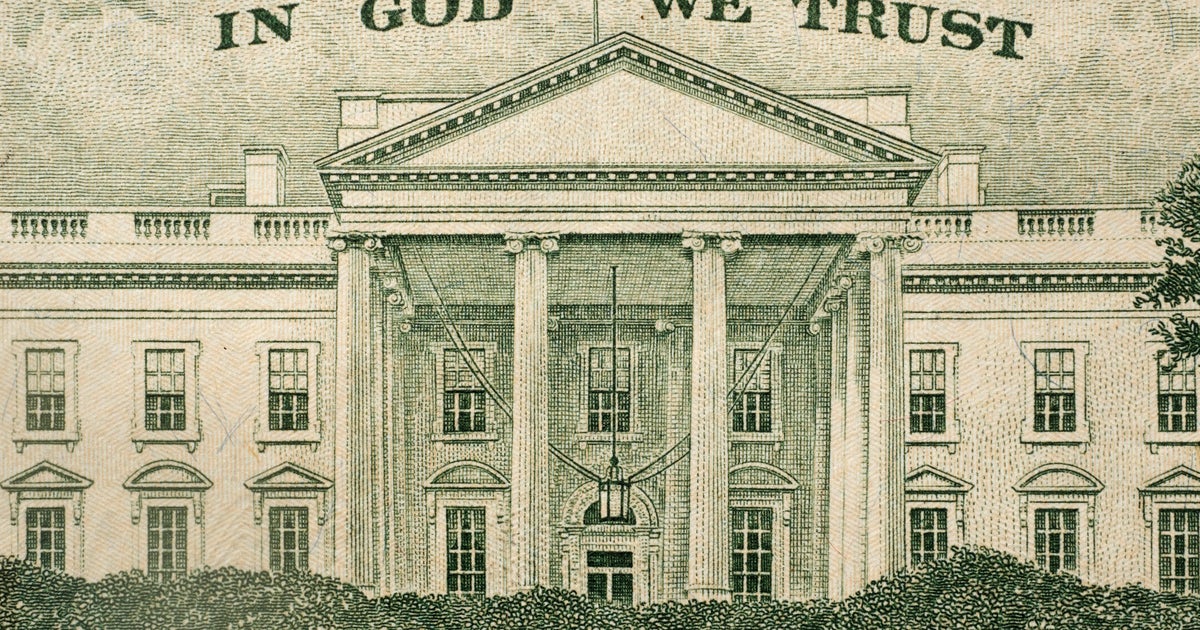
The U.S. president hasn’t been given a raise in more than 20 years.
That means Kamala Harris or Donald Trump will earn the same salary as their predecessor: $400,000 a year, as specified in Title 3 of the U.S. Code, paid monthly. The president also gets an additional $50,000 for expenses (non-taxable), a $100,000 travel account and a $19,000 entertainment budget.
Of course, the nation’s commander in chief is also entitled to other benefits, not least of which is a paid-for mansion known as the White House, as a residence.
Between 1969 and 2001, the last time Congress boosted the chief executive’s pay, the president earned $200,000 annually. In a 1999 hearing on the proposed pay raise, it was noted that compensation for “one of the most difficult, demanding and important jobs on the face of the earth” had not risen in three decades, while the salaries of private-sector chief executive officers were soaring.
Government reform expert Paul C. Light testified that he supported a presidential salary increase “if only to signal that the American political system values its chief executive enough to occasionally boost the base salary.”
How much did U.S. presidents earn in the past?
Historically, the president’s annual salary was worth a lot more when taking inflation into account.
Here’s what presidents made per year during previous historical periods, according to the University of Michigan, citing Congressional Quarterly’s “Guide to the Presidency.” How much that pay is worth in today’s dollars, after adjusting for inflation and based on calculations from Officialdata.org, is noted in parentheses:
1789: $25,000 ($895,741)
1873: $50,000 ($1.3 million)
1909: $75,000 ($2.6 million)
1949: $100,000 (plus $50,000 taxable expense account) ($1.3 million)
1969: $200,000 (plus $50,000 taxable expense account) ($1.7 million)
More money in memoirs
It’s worth noting that presidents remain on the federal government’s payroll after leaving The White House too. Since 1958, former presidents have earned an annual pension, which now amounts to more than $200,000. They also get office space in a place of their choosing and travel expenses, according to the Former Presidents Act of 1958.
U.S. presidents also typically earn much more money when they leave office through book sales, speaking engagements, media deals and other lucrative endeavors.
Ulysses S. Grant was the first U.S. president to write a memoir, which he famously finished only days before his death in 1885. Virtually every modern president, with the exception of Franklin Delano Roosevelt and John F. Kennedy, both of whom died while in office, has written a memoir.
“It’s where a lot of money comes from after they have been president,” Barbara Perry, co-chair of the Presidential Oral History Program at the Miller Center at the University of Virginia, told CBS MoneyWatch. “Written memoirs have earned them millions.”
CBS News
Man dies after being “buried under hot asphalt” while trying to fix dump truck in Mississippi

Police in Mississippi’s capital said a man died Monday when he was trying to repair a dump truck and asphalt poured onto him.
Darrell Sheriff, 41, was underneath the truck working on a hydraulic line when the tailgate opened and asphalt fell on him, Jackson Police Department said in a statement. Jackson Police Chief Joseph Wade told reporters that officers found Sheriff, who was a private contractor, “buried under hot asphalt.”
“It appeared to be some type of malfunction with his dump truck,” Wade said, adding it was a “horrific situation.”
The incident occurred at AJ Materials at around 10:30 a.m. on Monday, CBS affiliate WJTV reported.
Wade said people on scene tried to help Sheriff and “he tried to fight to make it through those injuries but it was just too enormous for him to survive.”
The police chief said the incident left witnessess and family members traumatized.
Wade said that family members said Sheriff was a “good, hardworking family man who just trying to make a living.”
The police department classified the death as an accident.
CBS News
What’s open and closed on Election Day 2024? Check here before you go.
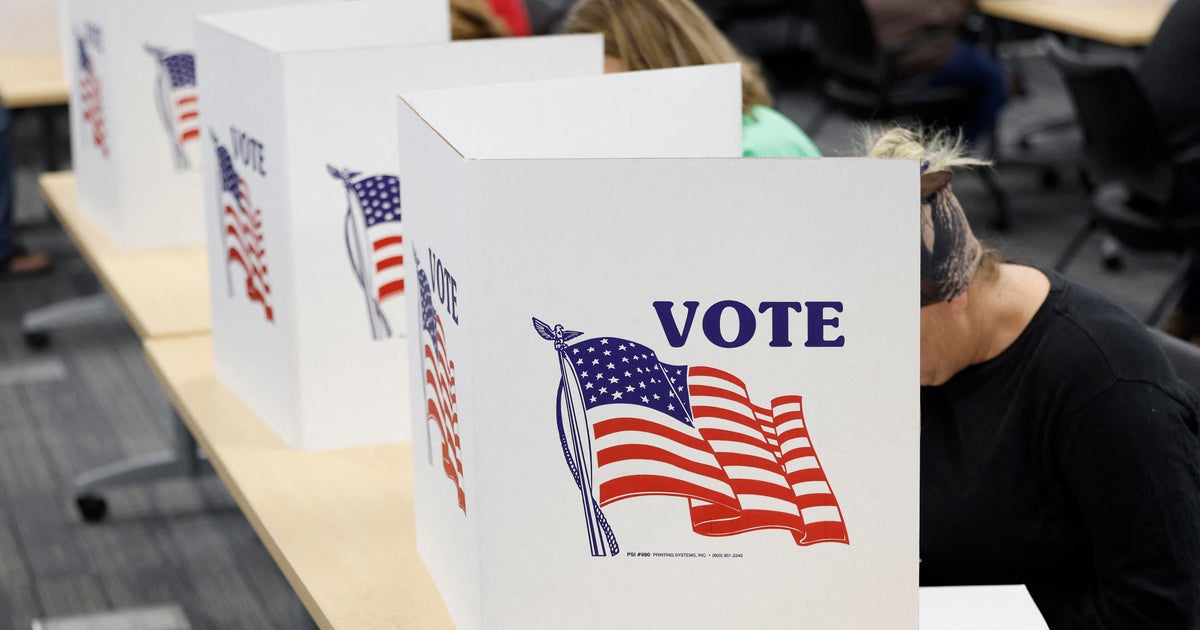
Election Day 2024 is expected to bring out tens of millions of people to their polling places, and many may also want to know what’s open or closed if they need to run errands, like shopping or getting to the post office.
While the Tuesday after the first Monday in November is designated for federal, state and local general elections, it is not a federal holiday. But some state offices will be closed, while workers in 28 states are guaranteed voting leave to take time off from work to cast their ballots.
That may leave some Americans to question whether they’ll find their local stores, banks, post offices, DMV and other services open on November 5. At the same time, some schools are closed on Election Day, partly as some educational facilities double as polling stations.
Are banks open on Election Day 2024?
Yes, banks and ATMs will be open on Election Day, given that it’s not a federal holiday, nor observed by the Federal Reserve system.
Wells Fargo, Citi and other major banks will be open on Nov. 5, according to their schedules. However, those banks and others will be closed Nov. 11, due to Veterans Day, which is a federal holiday.
Is the Post Office open on Election Day 2024?
Yes, the U.S. Postal Service will be open on Nov. 5 because it isn’t a federal holiday.
The USPS will also be delivering ballots mailed ahead of Election Day, although the postal service recommended that people who are voting by mail post their ballot by Oct. 29, or last Tuesday, to ensure timely delivery.
USPS workers will be delivering regular residential and business mail on Nov. 5, while its stores and other locations will be operating with their normal hours.
Is the DMV open on Election Day 2024?
Some states recognize Election Day as a public holiday, which means some offices there, including Department of Motor Vehicle offices, may be closed on November 5. U.S. states where DMV locations will be closed on Nov. 5 include:
- Delaware
- Illinois
- New Jersey
- Virginia
- West Virginia
Other municipal; offices could also be closed in these and other states or cities that observe Election Day as a holiday. For instance, New York state and city courts will be closed on Nov. 5, as well as New York City offices.
Are any retailers closed on Election Day 2024?
Stores are generally open on Election Day given that it’s not a federal holiday. Among those that will be open are Costco, Walmart and Target.
However, some stores may have modified hours to accommodate workers who are voting. For instance, Bath & Body Works locations will open at noon on Nov. 5, rather than the retailer’s regular 10 a.m. opening time.
Are bars and liquor stores open on Election Day 2024?
Yes, bars and liquor stores are open on Election Day, although that wasn’t always the case in some states.
South Carolina repealed its ban on liquor sales on Election Day in 2014, with the state joining the rest of the nation in permitting spirits and other drinks to be sold on voting day.
That ban, which dated to the 1800s, was designed to reduce bribery and corruption during elections, Reuters reported. Election Day bans on alcohol sales were once common in the U.S. because of fears that politicians would buy votes by providing drinks, according to the New York Times


